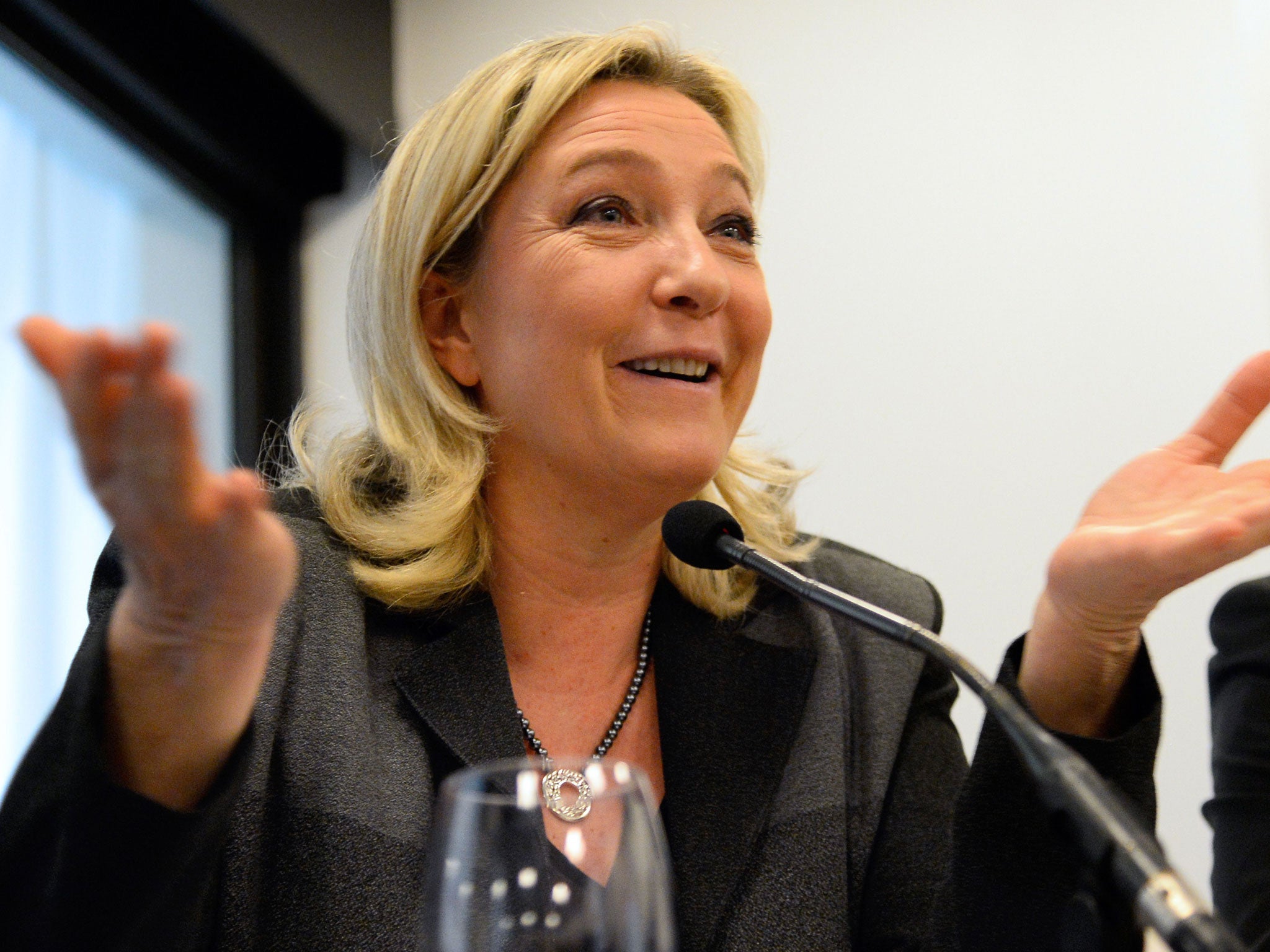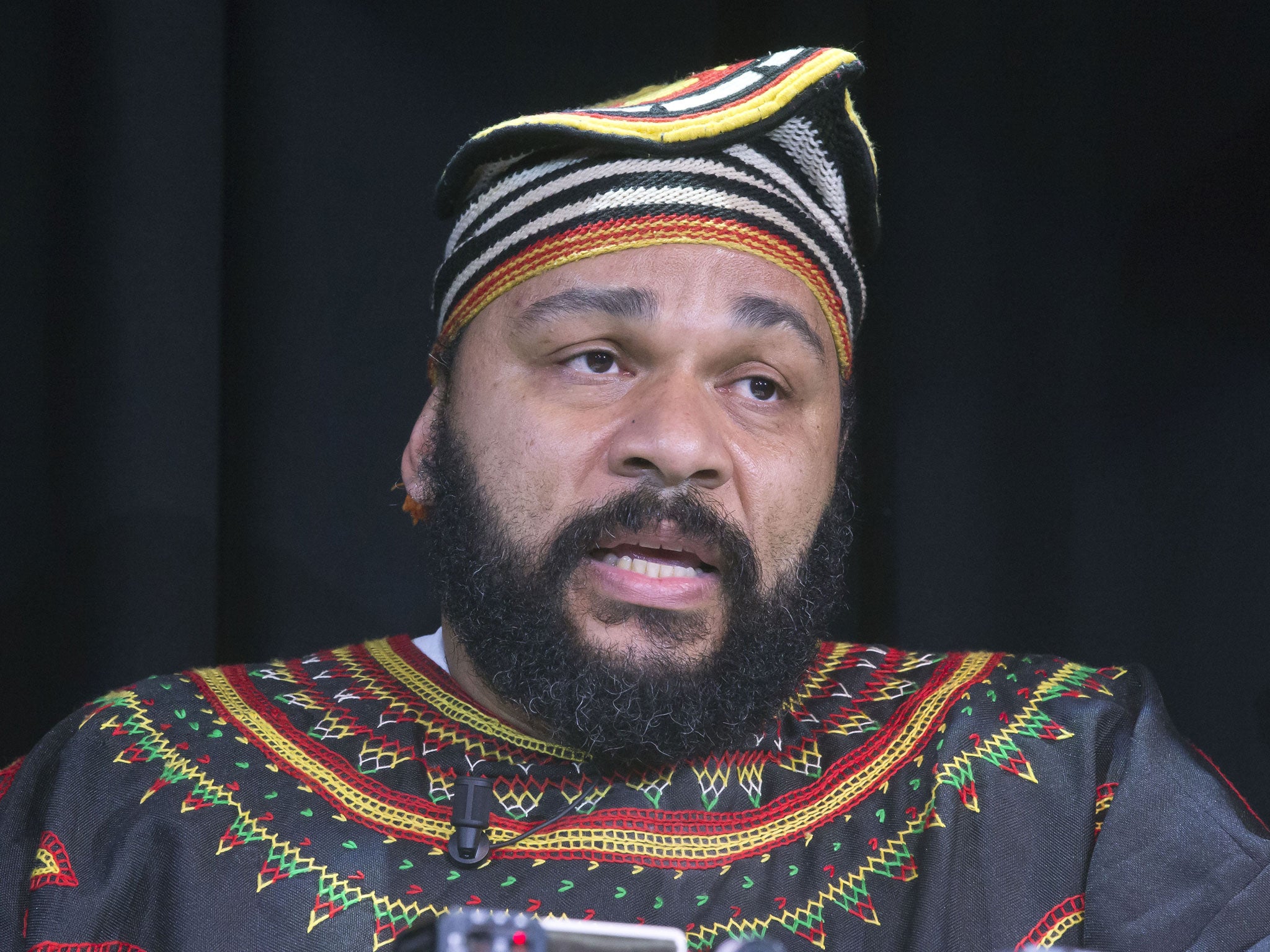France's National Front: After a series of political setbacks, it seems Marine Le Pen is not so mighty as all that

Your support helps us to tell the story
This election is still a dead heat, according to most polls. In a fight with such wafer-thin margins, we need reporters on the ground talking to the people Trump and Harris are courting. Your support allows us to keep sending journalists to the story.
The Independent is trusted by 27 million Americans from across the entire political spectrum every month. Unlike many other quality news outlets, we choose not to lock you out of our reporting and analysis with paywalls. But quality journalism must still be paid for.
Help us keep bring these critical stories to light. Your support makes all the difference.
After three years of almost unbroken success, the National Front leader Marine Le Pen has begun to stumble in her drive to steam-clean and re-brand the French far right.
Poor polling results and a series of embarrassing defections and outbreaks of grass-roots racism within her party have left Ms Le Pen facing the prospect of disappointing results in local elections in March.
The National Front still has high hopes of topping a nationwide poll for the first time in the European Parliament elections in May. So far, however, a critical year for her experiment in laundering the French far right has started badly for Ms Le Pen.
An opinion poll yesterday suggested that the National Front might capture only nine per cent of the nationwide vote in the municipal elections in March – compared to a forecast 16 per cent in September. In other polls in recent months, Ms Le Pen’s personal popularity rating has begun to slide for the first time since she replaced her father as party president almost exactly three years ago.
The polling set-backs coincide with – and are partly explained by – a series of defections by converts to “Marinism” who have stormed out of the NF complaining that the party remains racist, homophobic and amateurish. At the same time, Ms Le Pen has been forced to suspend, or dismiss, a series of NF municipal candidates who have made racist comments on blogs.
Pollsters also attribute her slide to the renewed controversy surrounding the anti-semitic black comedian, Dieudonné M’bala M’bala. Marine has distanced herself from Dieudonné but he remains a friend of her father, the party’s founder, Jean-Marie Le Pen.
Marine, 46, has attempted – in her own words – to “de-demonise” the NF by banishing outright racists from the party and abandoning the scarcely coded anti-semitic and Islam-baiting language of her father. She has moved the party towards the left on social and economic issues while campaigning strongly – UKIP-like - against immigration and the European Union.
This approach has attracted recruits from the Centre-right and from the Left – a series of whom have stormed away again in recent weeks complaining that the NF remains irredeemably racist at its core.

The latest defector from the centre-right to re-defect is Vincent Morelle, 24, who days after joining the NF found himself director of the party’s election campaign in the large suburban town of Meaux, east of Paris. In an interview this week with the left-wing newspaper Libération, he said: “They have put up new curtains but, at the back of the shop, nothing has changed.”
At local party meetings, he said, members referred to the black justice minister, Christane Taubira as a “filthy monkey”. The local mayor and MP, Jean-Francois Copé – also the national president of France’s main centre-right party – is of Jewish origin. He was allegedly routinely referred to at NF meetings as “Copélovici” and the “deportation” candidate.
In November, Nadia Portheault, an NF candidate for the municipal elections in Saint-Alban near Toulouse, stormed out of the party saying that there was a “gulf between Marine’s words and a party base…which specialises in filthy jokes on Arabs and homos.” Ms Portheault is of Algerian origin.
In the same month, Anna Rosso-Roig, who had migrated from the Communist Party to become an NF municipal candidate in Marseille, resigned describing her new party as “anti-Muslim”, “brutal” and “sexist”.
The National Front has dismissed these defectors as, in effect, double agents, or triple agents, sent in by other parties to make trouble. Party officials have also minimised the importance of the dip in the opinion polls.
Marine Le Pen’s reduce popularity rating remains – at around 29 per cent – higher than President François Hollande, they point out. Jean-Marie Le Pen never climbed so high.
The collapse in the forecast score in the municipal elections is partly explained, they say, by the fact that the National Front cannot afford the money – and cannot find the candidates – to run in scores of towns. This, however, points to the limits of Ms Le Pen’s drive to remodel and “professionalise” the party.
In the European elections in May, when turnout will be low, the NF still hopes – like UKIP in Britain – to top the poll nationally. But pollsters are beginning to ask whether the popularity of Marine Le Pen, like a racehorse or athlete, has “peaked too soon”.
Subscribe to Independent Premium to bookmark this article
Want to bookmark your favourite articles and stories to read or reference later? Start your Independent Premium subscription today.
Join our commenting forum
Join thought-provoking conversations, follow other Independent readers and see their replies
Comments